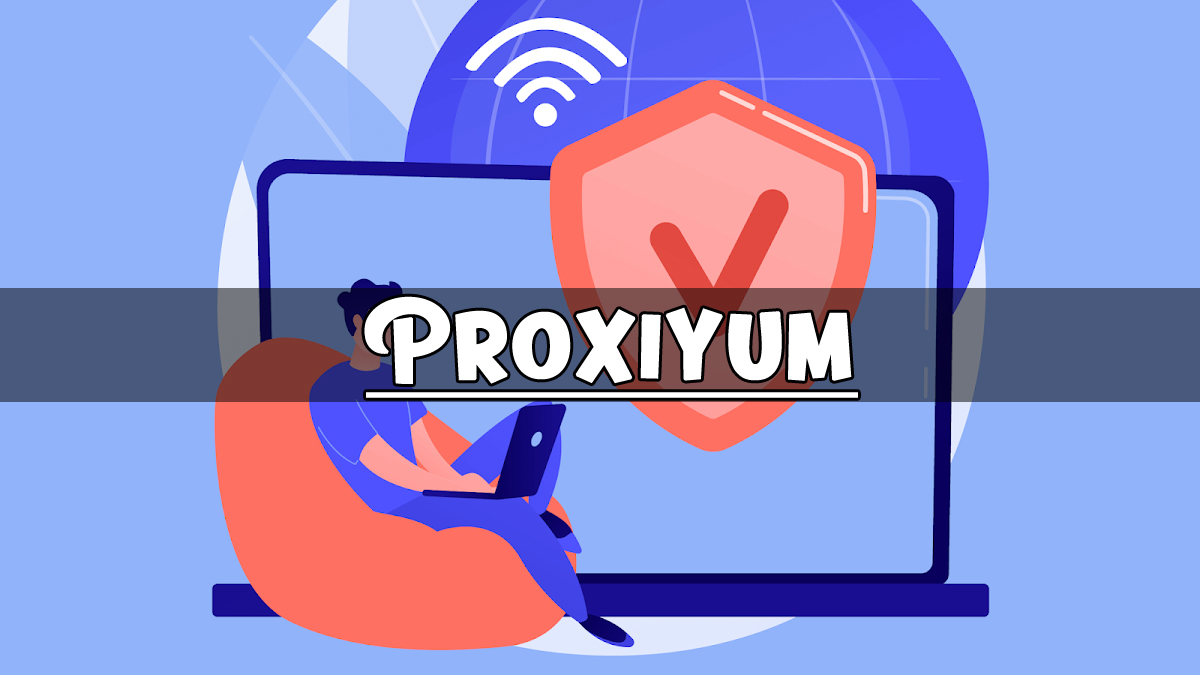In today’s interconnected digital world, the term “proxy” often surfaces, especially in conversations about internet privacy and accessibility. A proxy acts as an intermediary between a user’s device and the internet. It offers a gateway for handling web requests and responses. The beauty of a proxy lies in its simplicity and power. It masks your IP address, giving you anonymity and freedom online. This feature is particularly valuable in an era where digital footprints are closely monitored. As we delve deeper into the world of proxies, we encounter “Proxiyum.” It represents the evolution of proxy technology, offering advanced features and greater reliability. This innovative solution is reshaping how we think about and use proxies. It stands as a testament to the ongoing advancements in internet technology.
Proxies come in various forms, each tailored to specific needs. They range from simple web proxies for casual browsing to more robust, server-based proxies for businesses. This adaptability makes proxies an essential tool in modern technology. They’re not just for bypassing geographical restrictions or accessing blocked content. Proxies play a critical role in enhancing security and improving network performance.
Understanding proxies is vital for anyone navigating the digital landscape. Whether you’re a tech enthusiast, a privacy-conscious individual, or a business professional, proxies offer a level of control and security that is indispensable in today’s world. As Proxiyum paves the way, we’re witnessing a new era of internet accessibility and freedom. This is just the beginning of a journey towards a more secure and unrestricted web experience.
The Basics of Proxy Servers

Think of a proxy as a gateway. It takes your web requests, processes them, and then sends them to the intended servers. In return, it receives the server’s response and forwards it back to you. This process is seamless and fast.
At the heart of proxy technology is anonymity. Proxies hide your real IP address. This hiding trick ensures your online activities remain private. It’s especially useful for bypassing geographical restrictions. You can access content from anywhere in the world.
Enter Proxiyum. This innovative proxy solution offers enhanced features. It promises better security and faster internet experience. It stands out in the market for its reliability and advanced capabilities.
Moreover, proxies are not just for individual use. Businesses use them for network security and data privacy. They are tools for managing internet usage within organizations.
How Proxiyum Work
- Proxies as Intermediaries: Proxies work by acting as an intermediary between a user’s device and the internet. When you send a request, it first goes to the proxy server.
- Request Processing: The proxy receives the request, processes it, and forwards it to the web server. This process masks your IP address with its own.
- Receiving and Forwarding Responses: The web server sends the response back to the proxy, which then forwards it to your device, completing the communication cycle.
- Enhanced Security: By acting as a go-between, proxies add an extra layer of security, shielding your device from direct exposure to the internet.
- Anonymity and Privacy: Proxies provide anonymity, making it difficult for websites to track your location or identify your device directly.
- Access Control: Proxies can be configured to restrict access to certain websites, which is particularly useful in organizational settings for enforcing internet usage policies.
- Caching Capabilities: Some proxies cache frequently accessed web pages. This feature speeds up loading times for these pages on subsequent visits.
- Proxiyum Role: It integrates into this process as a specialized proxy solution, offering advanced features like higher security protocols and improved user privacy management.
- Load Balancing: Certain proxies distribute network traffic across multiple servers, balancing the load and improving website performance and reliability.
- Filtering and Monitoring: In some environments, proxies filter and monitor internet traffic, which can be crucial for data protection and compliance with regulations.
Setting Up a Proxy Server

First, you need to choose the right type of proxy. This choice depends on your needs. Are you looking for privacy, or do you need to bypass geo-restrictions? Answering these questions will guide you.
Next, configure your device to connect to the proxy. This step usually involves entering the proxy’s IP address and port number in your device’s network settings. You can find these details from your proxy provider.
Now, test the connection to ensure everything works smoothly. Open your web browser and visit any website. If the setup is correct, the site will load via the proxy server.
At this point, enter Proxiyum. It’s a reliable and efficient proxy solution. It offers enhanced security features. It ensures your online activities stay private and secure.
Remember, maintaining your proxy server is crucial. Regular updates and security checks are important. They keep your connection safe and efficient.
Potential Risks and How to Avoid Them
- Risk of Data Interception: Since proxies handle your data, there’s a risk of sensitive information being intercepted, especially with non-encrypted connections. Avoidance: Use SSL/HTTPS proxies or services like Proxiyum, which offer encrypted connections for enhanced security.
- Malicious Proxy Servers: Some proxies may be set up by malicious entities to steal data or inject malware. Avoidance: Stick to reputable proxy providers and avoid free or unknown proxy services.
- Logging and Privacy Concerns: Some proxy servers log user activities, which can be a privacy issue. Avoidance: Choose a proxy service that has a clear no-logging policy and respects user privacy.
- Performance Issues: Poorly configured or overloaded proxies can lead to slow internet speeds and poor performance. Avoidance: Use high-quality, reputable proxies and regularly check their performance.
- Blocked Services: Some websites and services block traffic from known proxies, limiting accessibility. Avoidance: Use more sophisticated proxies that can evade detection, like rotating or residential proxies.
- Configuration Errors: Incorrect setup of a proxy can lead to security vulnerabilities or non-functioning services. Avoidance: Follow setup instructions carefully and consider professional help for complex configurations.
- Dependency and Overreliance: Relying too much on proxies can be problematic if the service experiences downtime or discontinuation. Avoidance: Have backup proxies or alternative solutions in place and stay adaptable in your approach.
Proxy vs VPN: Making the Right Choice

When deciding between a proxy and a VPN, understanding their differences is key. A proxy serves as a gateway for your internet requests. It hides your IP address and lets you bypass geo-restrictions. However, it only works for your web browser or specific applications.
On the other hand, a VPN encrypts your entire internet connection. This encryption keeps all your online activities private and secure. It offers more comprehensive security than a proxy. VPNs are ideal for those who prioritize privacy and security in all their online actions.
In the middle of this comparison is Proxiyum. While this tool is a proxy solution, it offers advanced security features typically seen in VPNs. This makes it a unique choice for users seeking both accessibility and enhanced privacy.
Both proxies and VPNs have their merits. Choose a proxy for simple tasks like accessing region-restricted content. Opt for a VPN when you need full encryption and complete online privacy.
Embracing the Freedom of Unrestricted Web Access
In conclusion, unrestricted web access is more than a convenience; it’s a gateway to global information and resources. The digital age offers unparalleled opportunities for learning, sharing, and connecting. But with these opportunities come challenges. We face restrictions, privacy concerns, and security risks. Solutions like Proxiyum play a crucial role. They help us navigate these challenges with ease. They provide access while ensuring our online activities remain private and secure. As we move forward, it’s important to remember the power of unrestricted access. It empowers us to explore, learn, and grow in a boundless digital universe. Let’s embrace this freedom and use it responsibly for a more connected and informed world.
